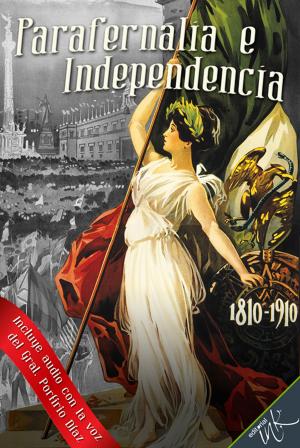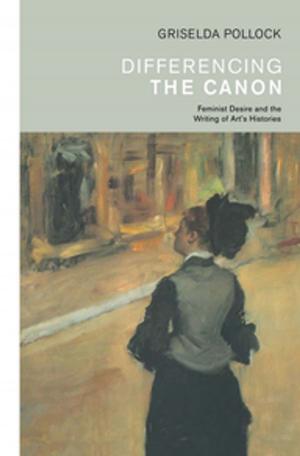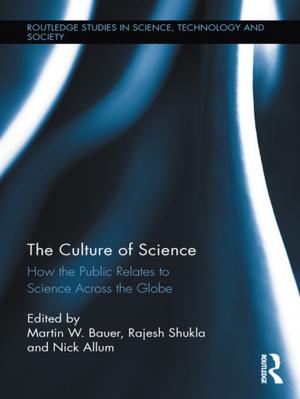The God Revolution
How Ideas About God Radically Changed During The Modern Era
Nonfiction, Religion & Spirituality, Philosophy, Modern, History| Author: | Keith Hill | ISBN: | 9780473402242 |
| Publisher: | Attar Media Ltd | Publication: | July 20, 2017 |
| Imprint: | Attar Books | Language: | English |
| Author: | Keith Hill |
| ISBN: | 9780473402242 |
| Publisher: | Attar Media Ltd |
| Publication: | July 20, 2017 |
| Imprint: | Attar Books |
| Language: | English |
Our view of the universe has changed radically since the Renaissance. We no longer think, speak, live, or see the world as our forebears did. The Protestant Reformation, the replacing of feudal social hierarchies with liberal democracy, the separation of State and Church, the industrial revolution, the advent of universal education, shifting from mythological religious explanations of the world to those offered by scientific materialism, the rise of the autonomous individual – these collectively created the modern and changed our intellectual outlook profoundly. With them, inevitably came new ideas about God.
The God Revolution examines the social, intellectual, and religious changes that have occurred since 1620, when Frances Bacon first proposed the scientific method, through to today when theologians are grappling with God in the context of our current vision of a mind-bogglingly immense universe.
Before the modern era Westerners looked at the world through the lens of religion, using mythological stories to explain how and why the world is the way it is. Truth came from God, who was perfect and all-knowing. We knew what God wanted of us because His Word was recorded in the Bible. The Word gave us God’s infallible Truth. Social structures reinforced the religious outlook. The Medieval world was ordered into a feudal hierarchy in which serfs obeyed the aristocracy, aristocrats obeyed the Catholic Church, and the Church obeyed God. The result was that God was the perfect and benign controller of the world, manipulating all that happened through His representatives on Earth, and occasionally directly and miraculously intervening Himself.
But after the Renaissance Western societies changed profoundly. The Protestant Reformation, initiated by Martin Luther, challenged the religious and political control of the Catholic Church. Liberal democracies separated State and Church. Industrialization sucked workers off the land and into cities. Severed from their traditional aristocratic masters, the medieval feudal hierarchy disintegrated. Enlightenment thinkers, lead by John Locke and Emmanuel Kant, no longer believed in miracles and encouraged each person to use rational thought to decide what was true for themselves. And the sciences showed the limitations of religious explanations of the world.
All this meant that where previously the view had been that not a sparrow falls without God knowing of it, now it was seen that gravity caused the sparrow to fall, mathematics could be used to calculate the sparrow’s trajectory, biology could discern what species the sparrow was, and newly created city by-laws dictated how the corpse should be disposed of.
These changes initiated four hundred years of grappling with God, in which enquiring theologians, fearless scholars, progressive social reformers, and boundary-breaking scientists collectively created an exciting new worldview which required an equally challenging new concept of God to inhabit it.
The God Revolution surveys the key ideas of historical thinkers who have shaped our modern view of reality, and the contributions of contemporary thinkers who are exploring ways of situating God in the midst of the modern world
Our view of the universe has changed radically since the Renaissance. We no longer think, speak, live, or see the world as our forebears did. The Protestant Reformation, the replacing of feudal social hierarchies with liberal democracy, the separation of State and Church, the industrial revolution, the advent of universal education, shifting from mythological religious explanations of the world to those offered by scientific materialism, the rise of the autonomous individual – these collectively created the modern and changed our intellectual outlook profoundly. With them, inevitably came new ideas about God.
The God Revolution examines the social, intellectual, and religious changes that have occurred since 1620, when Frances Bacon first proposed the scientific method, through to today when theologians are grappling with God in the context of our current vision of a mind-bogglingly immense universe.
Before the modern era Westerners looked at the world through the lens of religion, using mythological stories to explain how and why the world is the way it is. Truth came from God, who was perfect and all-knowing. We knew what God wanted of us because His Word was recorded in the Bible. The Word gave us God’s infallible Truth. Social structures reinforced the religious outlook. The Medieval world was ordered into a feudal hierarchy in which serfs obeyed the aristocracy, aristocrats obeyed the Catholic Church, and the Church obeyed God. The result was that God was the perfect and benign controller of the world, manipulating all that happened through His representatives on Earth, and occasionally directly and miraculously intervening Himself.
But after the Renaissance Western societies changed profoundly. The Protestant Reformation, initiated by Martin Luther, challenged the religious and political control of the Catholic Church. Liberal democracies separated State and Church. Industrialization sucked workers off the land and into cities. Severed from their traditional aristocratic masters, the medieval feudal hierarchy disintegrated. Enlightenment thinkers, lead by John Locke and Emmanuel Kant, no longer believed in miracles and encouraged each person to use rational thought to decide what was true for themselves. And the sciences showed the limitations of religious explanations of the world.
All this meant that where previously the view had been that not a sparrow falls without God knowing of it, now it was seen that gravity caused the sparrow to fall, mathematics could be used to calculate the sparrow’s trajectory, biology could discern what species the sparrow was, and newly created city by-laws dictated how the corpse should be disposed of.
These changes initiated four hundred years of grappling with God, in which enquiring theologians, fearless scholars, progressive social reformers, and boundary-breaking scientists collectively created an exciting new worldview which required an equally challenging new concept of God to inhabit it.
The God Revolution surveys the key ideas of historical thinkers who have shaped our modern view of reality, and the contributions of contemporary thinkers who are exploring ways of situating God in the midst of the modern world















